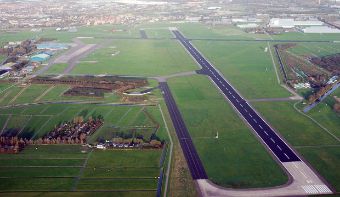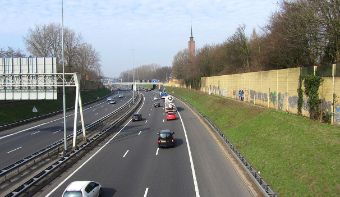Contract management
Focus on relationship and collaboration

Contract management
We strive for a form of contract management and dealing with our business associates that focuses on building and maintaining strong and long-term collaborations. This philosophy benefits collaboration and therefore the quality and result of the work.
We call this relational contracting. Unlike traditional contracts, which are often strictly legal and focus on regulating behaviour and resolving disputes, relational contracting emphasises trust, openness, mutual understanding and collaboration.
Smooth collaboration
Pre-project contracts are indispensable for a successful and smooth collaboration. The agreements are laid down in the collaboration agreement, clarifying as much as possible who is responsible for what. Tasks and responsibilities are defined, as well as agreements on how any conflicts will be resolved. Contract management allows us to manage, maintain and monitor these contracts from the negotiation phase up to and including the end of the agreement.
Traditional or integrated
A number of different contract variants are common in the construction sector. These include traditional forms of contact, such as Uniform Administrative Conditions for the Execution of Works (UAV) 2012, in which the client draws a line between the design and the execution of the project.
There are also more integrated contract forms such as Design and Construct (UAV-GC 2005) and DBFM (Design, Build, Finance and Maintain) contracts, where more responsibilities are transferred to the contracting parties.
On an international level, we work according to the international standards of FIDIC (the International Federation of Consulting Engineers) or in the more collaborative form NEC4, as is the case with the Oosterweel Link in Antwerp, Belgium.
Construction team
Since we like to work with other parties and do so often, we increasingly work on a project or programme based on a Construction Team contract form. This entails that the client, designers and contractors work together as a team to develop the project. This promotes the early engagement of all stakeholders and leads to supported, more integrated solutions, which often allow taking advantage of combination opportunities.
In large infrastructure and other projects, the government works with private parties to develop, finance and operate a project over a longer period of time; these are Public-Private Partnerships (PPPs). This form of collaboration can also perfectly suit energy transition programmes, for example. Based on this approach, we are involved in the achievement of the goals of the EnergieRijk Den Haag collaboration, which is about making all government buildings in The Hague climate-neutral.
Leading expertise
Regardless of the chosen contract form, no project is the same and customisation will often be required. Our contract experts are forerunners in this area and regularly co-write applicable, new or revised standards for contracts, such as the DG 2020 Model Construction Team Agreement. This expertise is not only used, but also regularly shared with colleagues. Both internally, when training colleagues, and externally, through conferences, publications and knowledge meetings.
More information?






